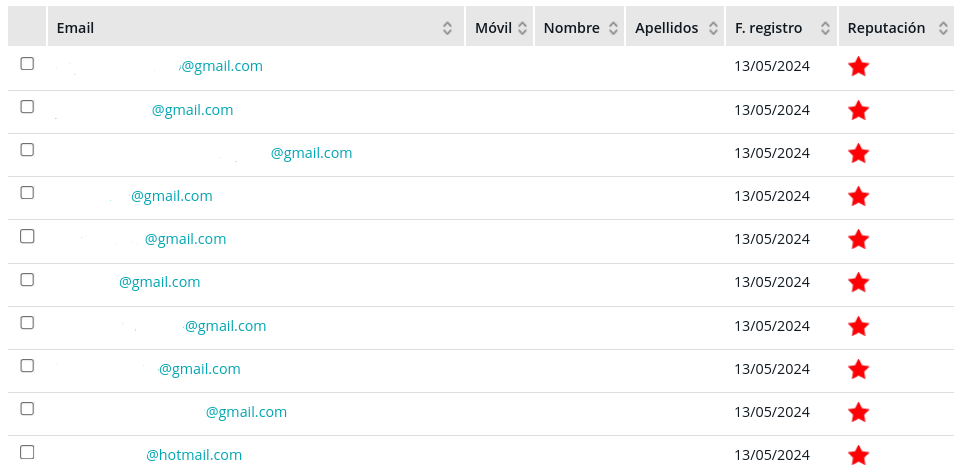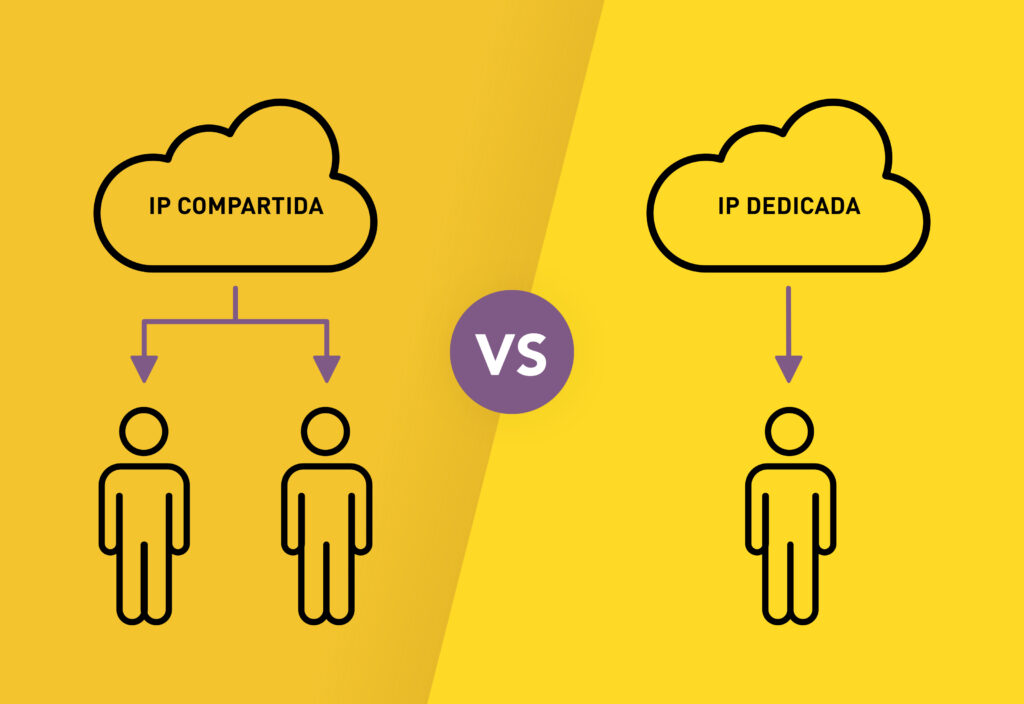The importance of IP Reputation in the success of your email marketing campaigns
the 14 of May of 2024
the 14/05/2024
One of the most effective ways to reach your customers is through an email list. However, to ensure deliverability and avoid ending up in the spam folder, you need to take care of certain aspects, such as IP reputation, among others. This is a key factor in the world of email marketing, as it largely determines the success or failure of your campaigns. For this reason, we will explore what IP reputation is, what it depends on, and why it is important.
TABLE OF CONTENTS
What is Email IP reputation and Its importance in Email Marketing?
IP reputation refers to the evaluation of the quality of the IP address from which emails are sent to subscribers. Email service providers are responsible for controlling and determining the potential risk of different IP addresses using various tools. This score is crucial to ensure the success of your email marketing campaigns, as it indicates whether emails reach users’ inboxes or are classified as spam.
This evaluation is calculated based on factors such as the number of times a subscription is canceled, which can increase the likelihood of the IP being marked as spam. However, it also depends on other factors based on the algorithms of different email clients and other user interactions, such as constantly sending emails to the trash, reading time, or clicks.
IP reputation in email marketing is very important because if emails are marked as spam, the open rate drops significantly. But that’s not the worst that can happen; accumulating messages marked as unwanted can make your domain appear threatening with malicious software. The only solution to avoid this outcome is to monitor your IP reputation closely.
How Can MDirector help you with IP reputation?
At MDirector, we want to help you monitor your IP reputation to ensure that your email marketing campaigns have the desired impact and that your emails don’t end up in the spam folder, trash, or blocked.
MDirector has a complete team of professionals who constantly monitor IPs and analyze their reputation. When an IP is experiencing a drop in reputation, potential causes are studied and analyzed, as these can be multiple, and the client is contacted to implement an optimal strategy to restore the reputation of the affected IP if necessary.
Factors that affect IP reputation
Understanding what might be going wrong with your IP reputation will help you improve and achieve the success of your email marketing campaigns. Therefore, some of the factors that affect this evaluation include:
- Sending Spam: This is one of the most critical factors affecting IP reputation. It occurs when subscribers mark your emails as spam, or if service providers detect suspicious activity.
- Email Volume: Sending large volumes of messages suddenly can be considered spam, so it’s important to maintain a constant and gradual quantity.
- Bounce Rate: A high percentage of bounced emails indicates that your database is outdated or contains incorrect addresses. For email service providers, this signals that you might be sending unwanted emails.
- Blacklist Participation: If you appear on a blacklist, email service providers may block your emails directly, which drastically affects your IP reputation and, therefore, your deliverability.
- Recipient Behavior: If users themselves mark your messages as spam or ignore them, this also damages your IP reputation. This is because service providers monitor recipient behavior and evaluate message quality based on the results.

Factores que afectan reputación IP
- Message Content: If the email contains suspicious content, such as links to unsafe websites or keywords associated with spam, they can be filtered or flagged as junk.
- Email Authentication (SPF, DKIM, DMARC): Lacking proper authentication can lead to your emails being blocked. Implementing SPF (Sender Policy Framework), DKIM (DomainKeys Identified Mail), and DMARC (Domain-based Message Authentication, Reporting, and Conformance) protocols helps authenticate emails, improving IP reputation.
- IP Address History: IP reputation also depends on whether your domain has a good sending history.
- Frequent IP Changes: Changing your IP address frequently can be perceived by email service providers as a suspicious practice, such as an attempt to escape detection or blocking.
- Network Infrastructure and Security Configuration: Having a solid and well-configured infrastructure helps maintain a good IP reputation and prevent malicious activities.
- Association with Other IPs and Domains with Poor Reputation: If your domain is associated with other IPs that have a poor reputation, yours may be affected by association.
How to improve IP reputation
After learning what IP reputation is and the factors that negatively influence it, it’s important to ensure email deliverability by following these recommendations:
- Implement Email Authentication (SPF, DKIM, DMARC): These protocols help verify the legitimacy of your emails. SPF specifies which servers are authorized to send emails on behalf of your domain; DKIM adds a digital signature to the email to verify its authenticity; and DMARC combines SPF and DKIM to provide an additional layer of security and control.
- Clean Your Mailing Lists and Obtain Recipient Permission: To maintain a good IP reputation, it’s important to have a quality database, which will help reduce bounce rates and reach recipients genuinely interested in your content. Therefore, make sure to remove outdated or incorrect accounts and have explicit permission from recipients.
- Get Off Blacklists: If you discover that your IP address has been blacklisted, identify and resolve the causes as soon as possible. Once resolved, you can request removal.
- Send Relevant and Quality Content: Provide valuable and relevant content to your subscribers. This increases the likelihood of them opening and clicking on your emails.
- Maintain a Consistent Sending Volume and Avoid Spikes: It’s not advisable to send large amounts of emails suddenly, as this may be considered suspicious activity by service providers. Instead, opt to maintain a steady and gradual pace to keep a healthy IP reputation.
- Monitor and Reduce Spam Complaint Rates: Pay attention to the messages that your recipients mark as spam and work to resolve the underlying causes. You can try adjusting your email marketing strategy by improving content quality or cleaning your mailing list.
- Use a Dedicated IP Address: If your sending volume is high, consider using a dedicated IP address instead of a shared one, as it will give you greater control over your IP reputation. Additionally, it significantly reduces the risk of being affected by other senders’ actions on the same shared IP address.
- Gradually Warm Up New IP Addresses: If you’ve just started with a new IP, MDirector will provide you with a warm-up plan with additional recommendations and steps to follow, tailored to your specific situation.
- Quickly Resolve Any Security Issues or Vulnerabilities: Keep your infrastructure secure and up to date to prevent your IP reputation from being affected.
- Avoid Frequent IP Address Changes: This action can be interpreted by email service providers as a suspicious practice. Maintain a stable address and work to improve it.
Despite its importance, IP reputation is often overlooked in email marketing. However, it’s a critical aspect that can not only ruin your campaigns but also damage your brand’s credibility and negatively impact your relationship with customers. Therefore, pay attention to the factors that can harm your reputation and achieve more effective communication, increasing the likelihood that your emails will reach your recipients’ inboxes.



















